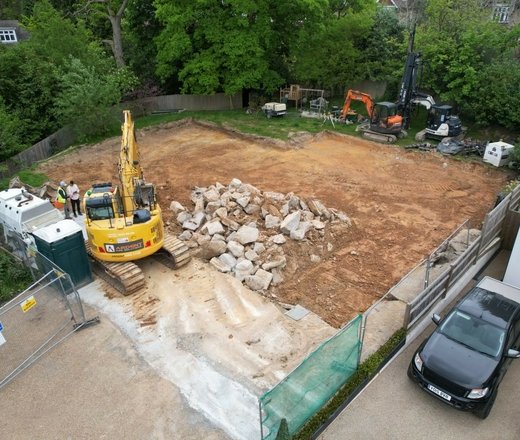Sometimes life takes you in unexpected directions and you find yourself on a different path to the one you thought you would be on. Maybe you have inherited a property much sooner than you had anticipated or your job is forcing a relocation but your home just won't sell. Like many homeowners, you might find yourself becoming an ‘accidental landlord’, letting out a property when you didn’t buy-to-let. Although you might have heard the term ‘accidental landlord’ before, there are a few different rules and regulations that are worth noting and we explain more here.
The path to becoming an ‘accidental landlord’
You might think that becoming a landlord is always a deliberate choice but in fact, some landlords find themselves in this position unexpectedly. A recent nationwide study revealed that 29% of all landlords become so unexpectedly. Finding yourself as an accidental landlord can be daunting for many and extra support is often needed to navigate the tricky process of letting out and managing a property. Here is everything you need to know…
Inform a current mortgage lender
Contacting your mortgage lender making them aware of your new situation is a must. This is commonly referred to in the industry as obtaining a Consent-to-Let. Failure to do so could result in mortgage fraud and may incur a fine.
Look into landlord insurance
Whilst landlord insurance isn’t a legal requirement, it’s worth giving this some serious consideration. Normal home insurance covers the occupiers’ possessions and the building itself, but specific landlord insurance covers a variety of incidentals including missed rental payments, loss of income if the property is left vacant for long periods, legal fees and expenses and home emergency cover if the supply of gas, electricity, heating or water is cut off. There are varying levels of cover available so it’s worth looking into this to establish the level of cover that will work best for you and your property.
Make your property safe for tenants
By law, all landlords are required to provide proof that the property is safe for tenants to inhabit. That means obtaining certificates and undertaking the required checks to maintain all appliances and services at the property. Gas appliances must have annual gas safety checks, your property must adhere to certain energy efficiency standards and you must have an electrical safety check carried out every five years.
Join a Tenancy Deposit Scheme
This is also a legal requirement and landlords face big financial penalties if caught out. Deposit registration is a complex process so it is imperative that you investigate the process as you are required to protect your tenant’s deposit using one of the Governments tenancy deposit protection schemes.
Get the property rental ready
You will need to invest time and money in making sure your property is ready for your tenants. Ensure that any required repairs are carried out before letting out your property and it is also a good idea to undertake any maintenance works or cosmetic improvements to ensure you can ask for the maximum rental.
Use a qualified Letting Agent
Having a qualified and local letting agent you can lean on to give you invaluable advice and guidance and make any relevant introductions to other specialists could be invaluable.
Becoming an accidental landlord can be daunting and seem like there is a lot to digest but with the right support and expertise, it should be a smooth process.
If you are looking for support in renting out a property why not give us a call on 01892 514100. The team at Maddisons Residential are more than happy to help.
Market your property with Maddisons Residential
For many, the first point in their house moving journey, is to understand the value of their current home. Whether you want a quick, instant, online indication, or a more robust property specific and individual valuation, we would be delighted to help.





